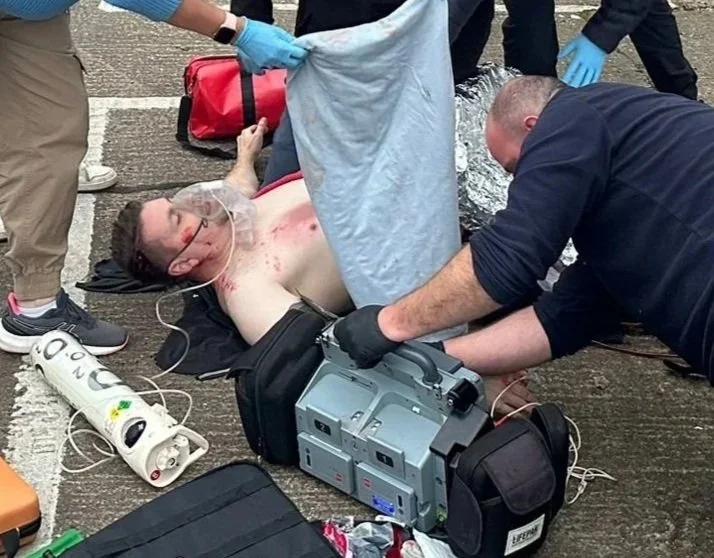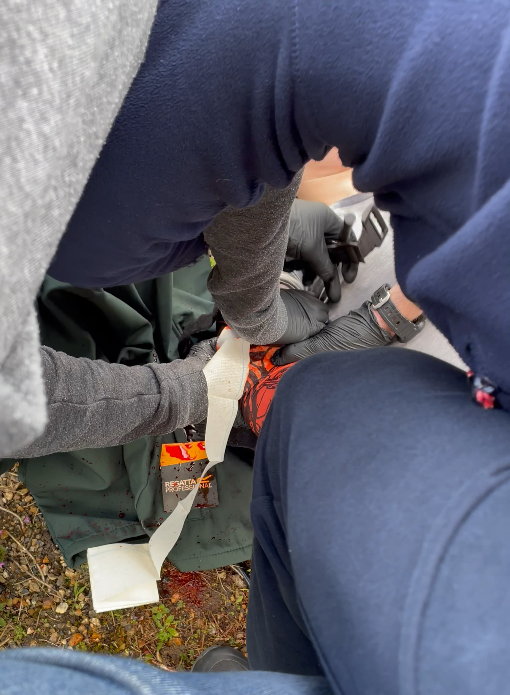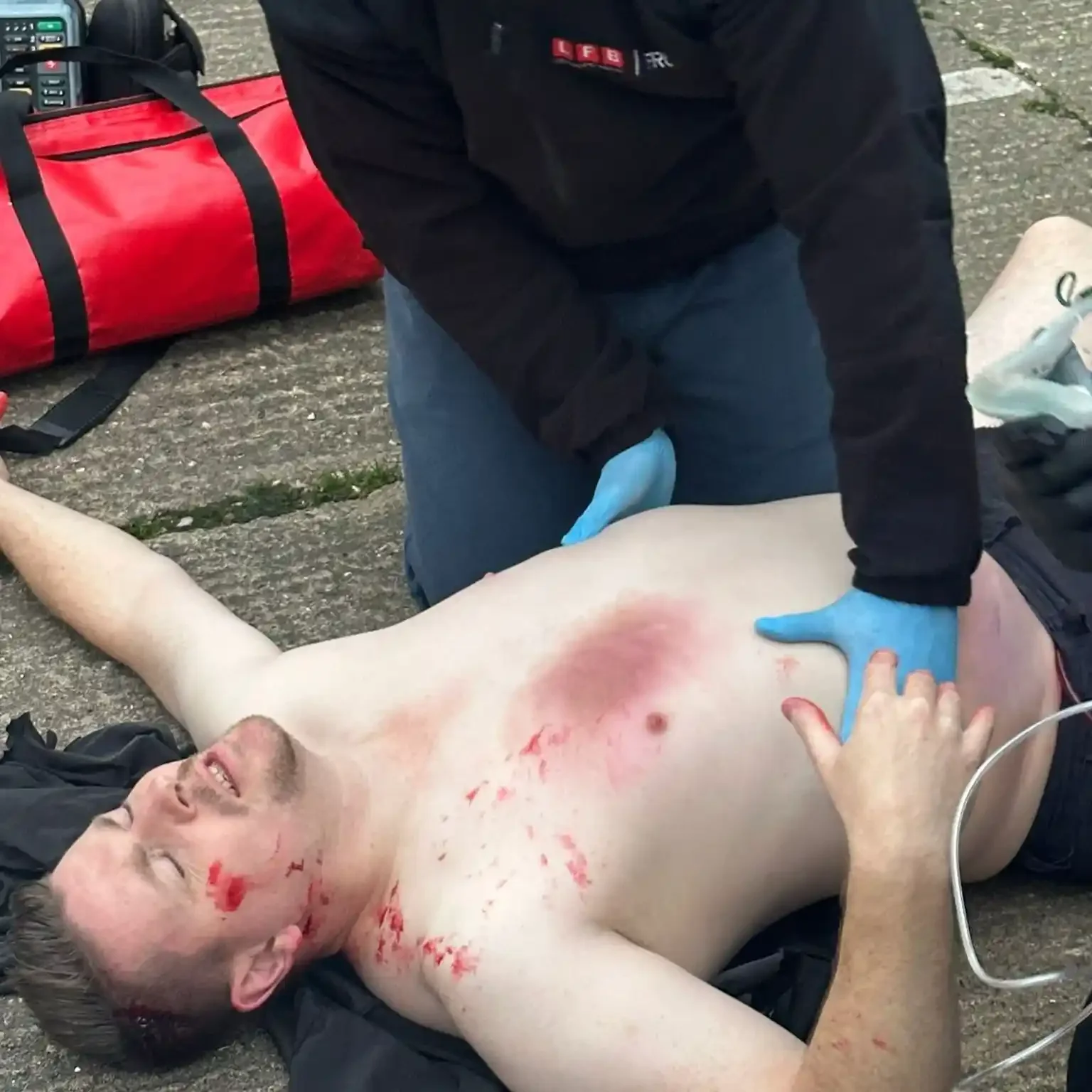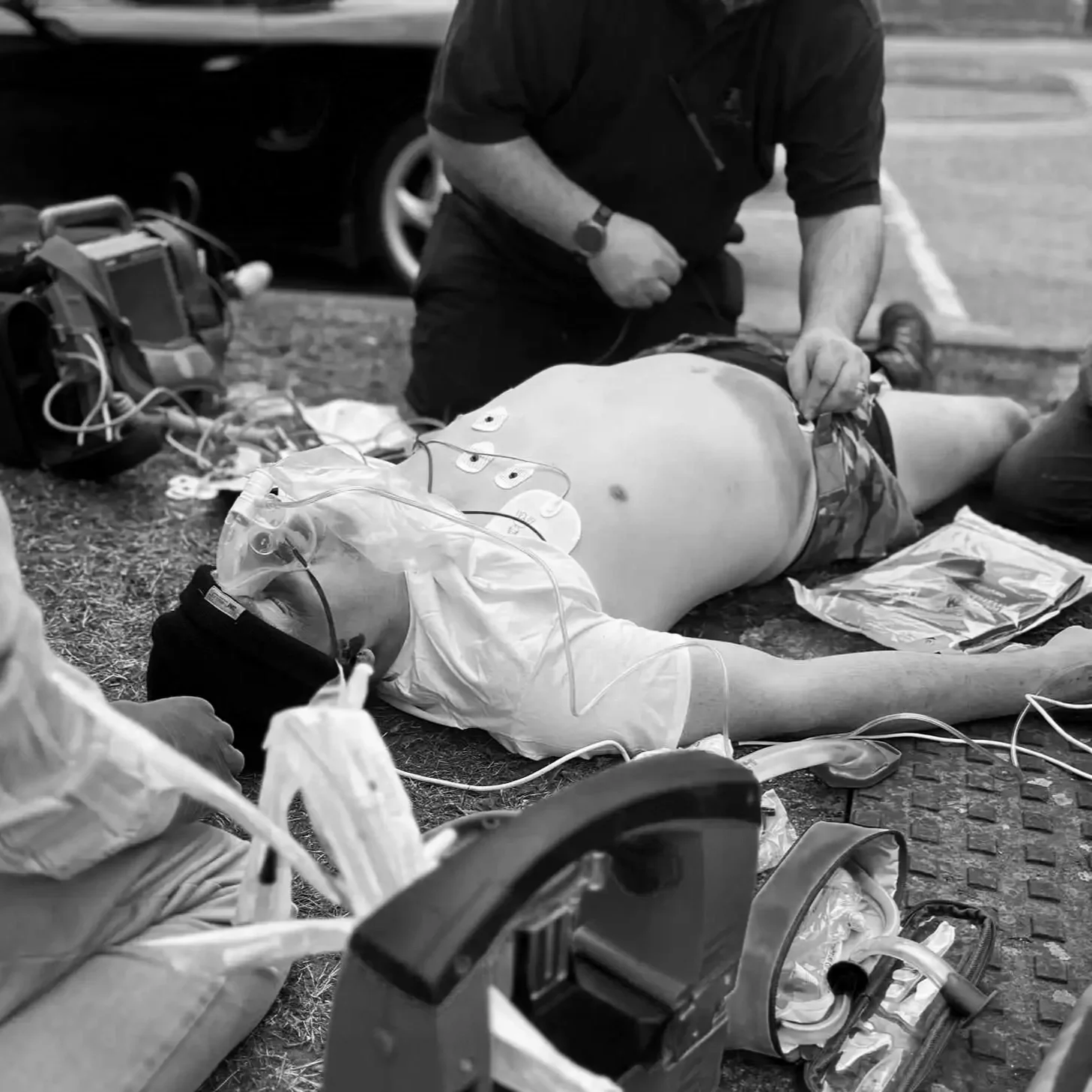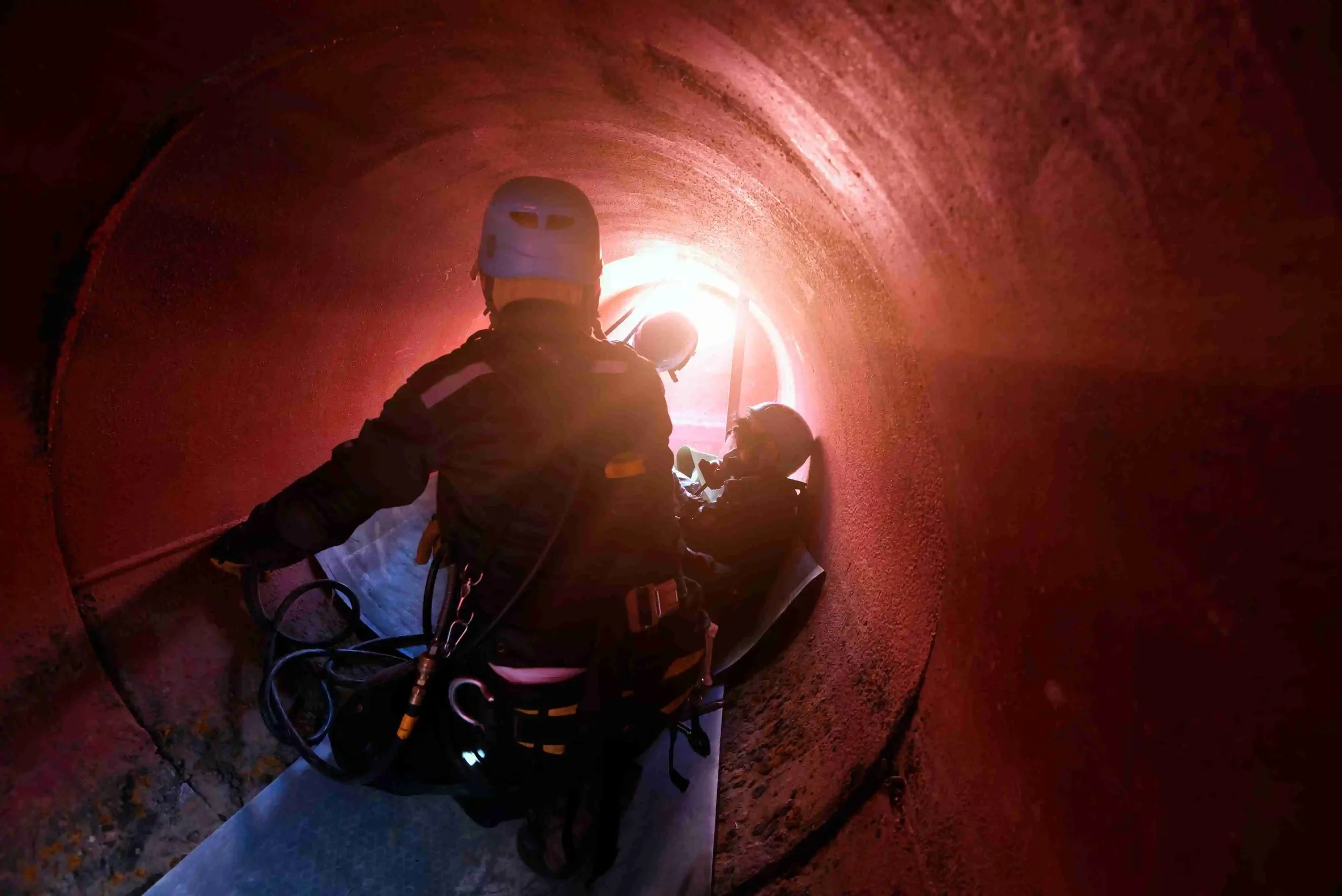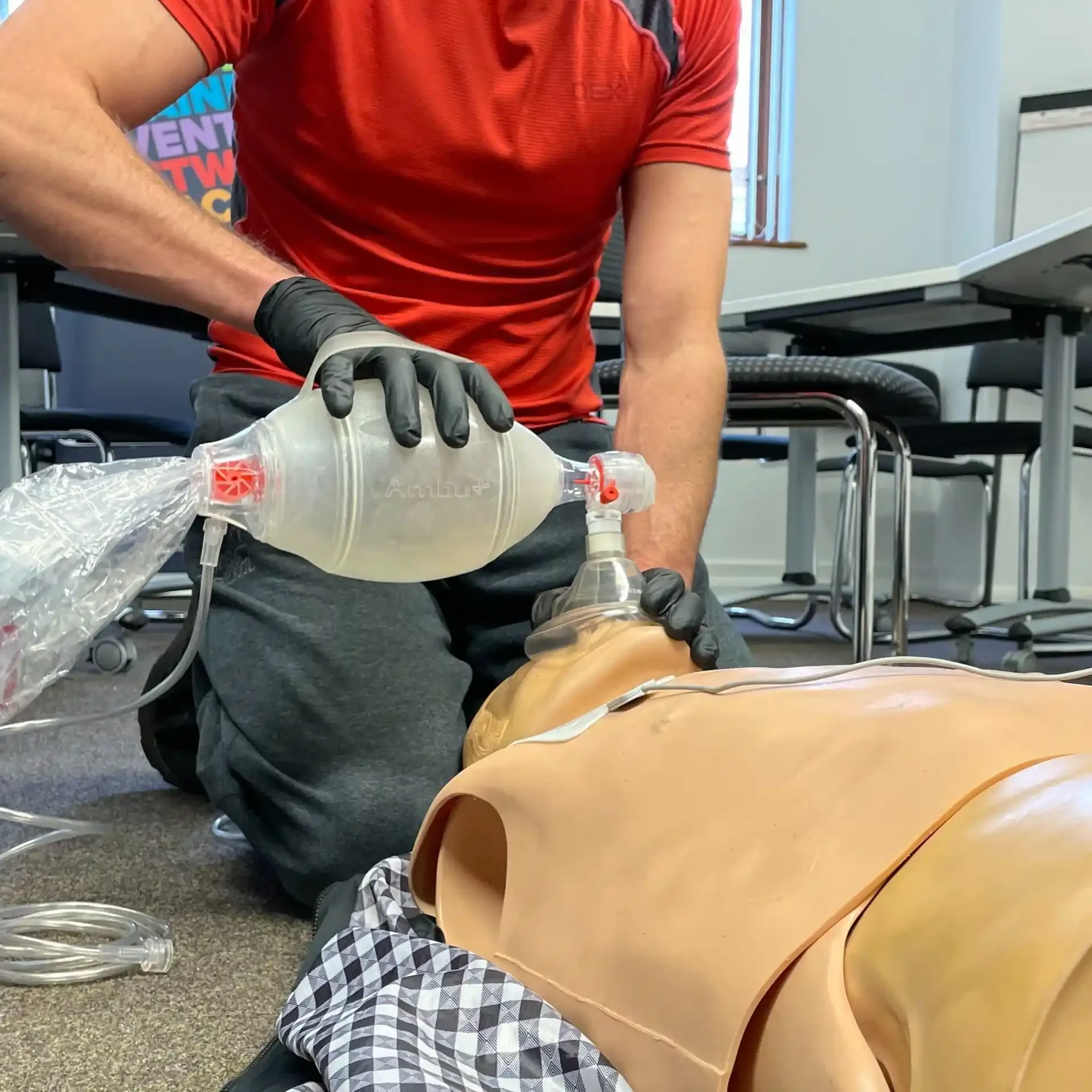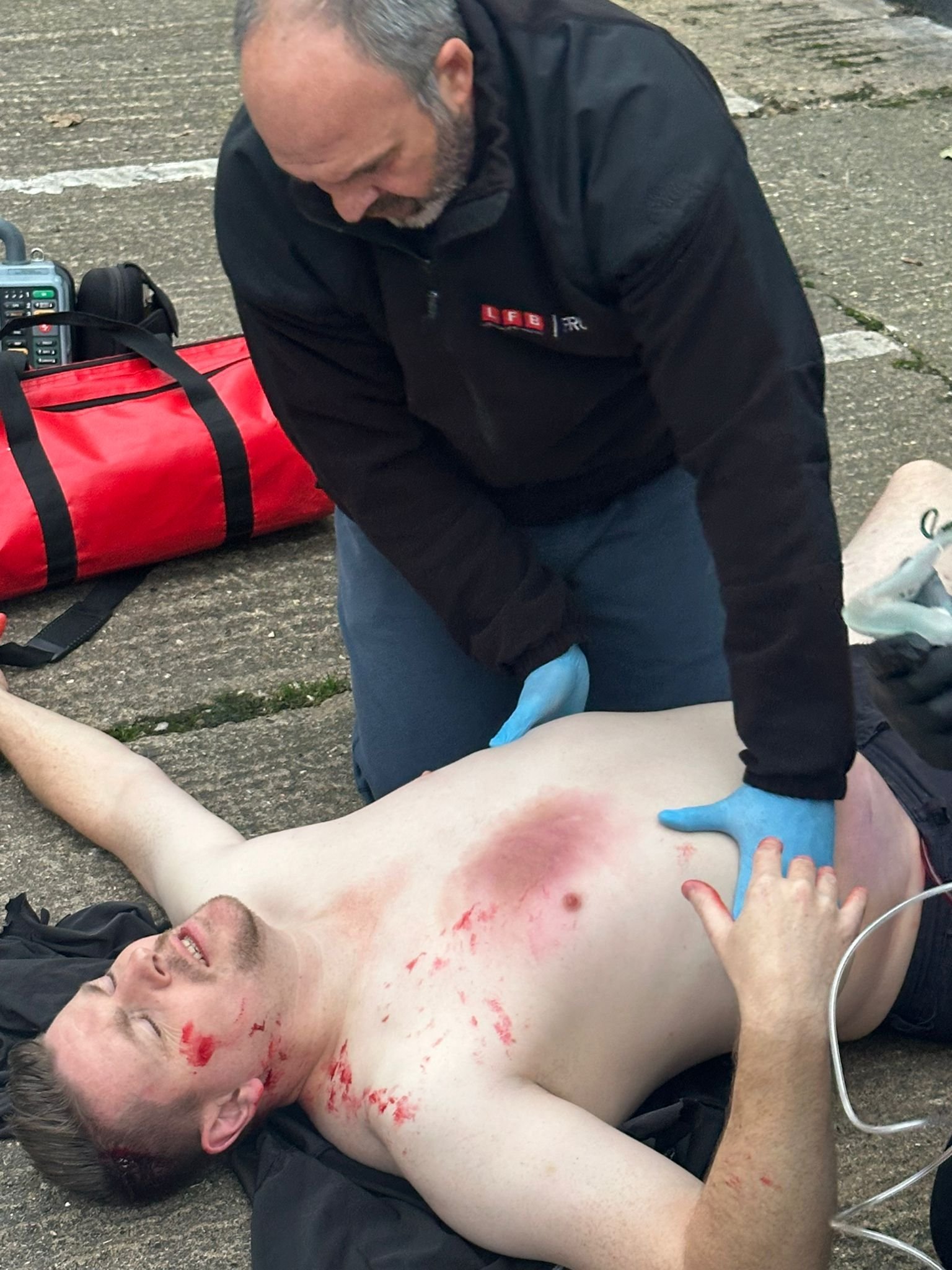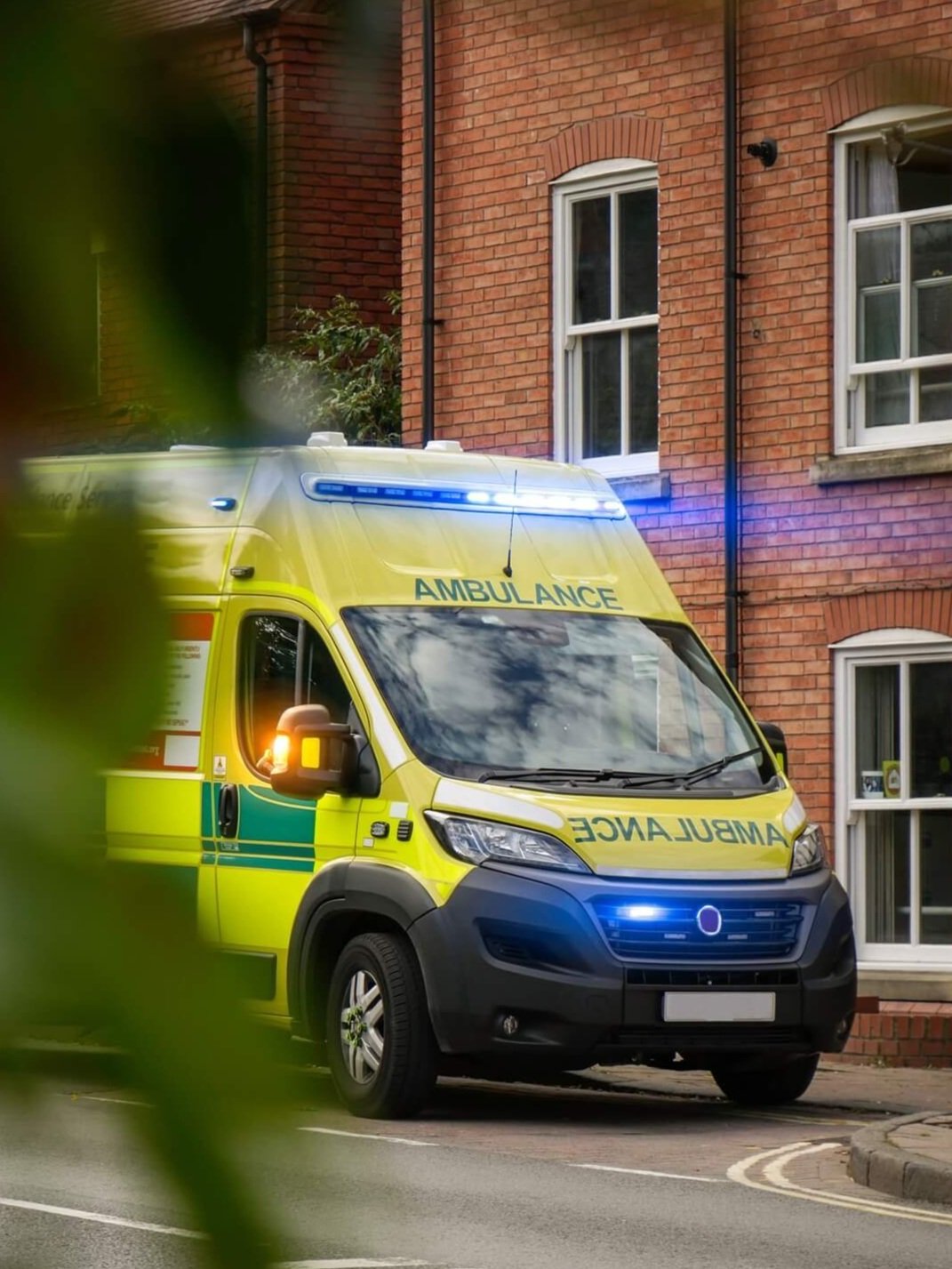First Aid for Security Teams: SIA First Aid Course Choices
Introduction
Security teams deal with a vast array of people in different settings. It is imperative for them to be equipped with a comprehensive SIA First Aid Course to prepare for diverse scenarios. This could be aggression and violence this could be providing support and reassurance, and it could be needing to provide emergency medical care. It is of vital importance that security teams have a good solid foundation of good quality first aid training to enable them to be able to act fast and with confidence should they need to.
Dependent on setting, this need may vary from basic first aid all the way up to pre-hospital care level.
Security training in the very first instance should always include a basic level of first aid, for example a Level 3 Emergency First Aid at Work Course. This would include things like CPR, the safe use of an AED, seizures, choking, burns, and catastrophic haemorrhage management.
When we think about more intensive first aid courses such as FREC 3 and FREC 4, these courses will incorporate a much more in-depth view of emergency response, human anatomy and physiology and the use of lots of scenarios and skills sessions.
Traditional First Aid Training in comparison to an SIA First Aid Course.
Traditional SIA first aid training of courses has its place in certain settings. It covers the basics that everyone should know in order to carry out good quality effective basic life support including how to use an AED safely, and some additional subjects such as seizures, choking, life threatening bleeding and burns management.
Everything on this list is relevant to lots of industries, security included. However, it does carry with it, its own set of limitations. These traditional 1 day first aid training courses are very basic in nature. Whilst they cover all the usual suspects like CPR and how to use an AED safely, they do not go into much detail about how the body responds to injury, the anatomy and physiology behind why we treat things the way we do or any management of specific injuries such as stabbings, gunshot wounds or falls from height.
Security work can be extremely dangerous, and it can be classed as a high-risk industry. Due also to the nature of clients that individuals may be working with, the risk of injury to themselves, their team or to the clients they are there to protect. This was brought into stark contrast at the Manchester Arena Bombing.
For example, imagine a festival full of 1000 + people. There is a huge diverse range of people at an event like this. There may be alcohol and drugs in use, which can change the way people would normally behave.
Introducing FREC, how can this course compliment an SIA First Aid Course?
First Response Emergency Care training known as FREC is currently available in 3 levels – 3, 4 & 5.
FREC 3 is the entry point onto the FREC pathway. It’s an intensive 5-day course that has no prerequisites for joining. It covers 3 broad units and there are practical and multiple-choice assessments throughout.
Some of the subjects that FREC 3 covers include:
The competencies outlined in the PHEM skills framework at descriptor level D,
Gain hands-on experience in administering emergency oxygen,
How to manage trauma patients,
How to recognise major illnesses,
Focussed emergency and urgent care,
Intensive scenarios with live actors enabling you to cover subjects such as catastrophic haemorrhage control, how to manage seizures, CPR and the safe use of an AED,
Management of blunt force and penetrating trauma,
Management of fractures and how to recognise these.
As you can see, FREC 3 is far more intensive and in depth than a traditional 1 day SIA first aid course. In addition, all its components make it ideal for those working in high-risk industry such as security and or close protection. And for those with an interest in pre-hospital care. FREC 3 enables individuals to be able to handle complex injuries and scenarios with much more confidence when compared to a traditional first aid training course.
FREC 4 is the next level up and this qualification would enable you to apply to work on an ambulance as an emergency care assistant (ECA). There is a pre-reading requirement for this course, and it is 5 days again in person including practical and multiple-choice assessments as with FREC 3. Following these 5 days, participants have a series of workbooks they need to go away and complete following the course. These are then assessed and marked by the course facilitator.
Some of the subjects covered in FREC 4 include:
Component 1
Component 1 of the Level 4 Certificate in First Response Emergency Care (FREC 4) focuses on "Patient Assessment and Management". This component addresses various crucial aspects of initial patient assessment and effective management of different health conditions.
Component 2 of the Level 4 Certificate in First Response Emergency Care (FREC 4) is titled "Emergency Trauma Care". This component delves into various critical aspects of managing trauma and understanding key body systems in the context of emergency care.
Component 3 of the Level 4 Certificate in First Response Emergency Care (FREC 4) is focused on "Focused Emergency and Urgent Care". This component covers a diverse range of topics crucial for providing comprehensive emergency care.
FREC 4 is another level up and still very much applicable to the security and close protection industry. It enables individuals to carry out more in-depth clinical examination, gain a deeper understanding of anatomy and physiology and further skills relating to the treatment of illness and injuries.
FREC 5 is the next level up again and is a much more intensive course with pre-hospital hours required. This qualification is ideal for individuals who wish to progress to the next stage in pre-hospital care and would like to work as an emergency medical technician (EMT) which is band 5 in the NHS.
NR Medical Training currently offer both FREC 3 & FREC 4.
SIA First aid course vs FREC
When comparing FREC to traditional first aid training, the scope and depth are notably different. Traditional first aid courses, such as a Level 3 Emergency First Aid Course, cover essential life-saving skills but often lack the depth needed in high-risk environments like security work. FREC, on the other hand, delves deeper into emergency response techniques, offering a more comprehensive understanding of trauma management and emergency care.
For instance, a traditional first aid course might teach basic CPR and AED usage, which is invaluable in many scenarios. However, FREC courses, starting from Level 3, integrate advanced techniques such as managing trauma patients, recognising major illnesses, and handling emergency situations with more complex requirements.
The practical application of these two training types also varies. Traditional first aid is suitable for everyday emergencies, whereas FREC is tailored to scenarios that security teams might face, such as handling injuries from physical confrontations or dealing with trauma at large-scale events.
Case Studies and Real-World Applications
In real-world scenarios, FREC training has proven its worth time and again. For example, a security team at a major music festival equipped with FREC training effectively managed multiple cases of drug overdoses and alcohol-related incidents, providing critical care until emergency services arrived. Another case involved a close protection operative who successfully managed a severe allergic reaction using skills acquired from FREC training.
Testimonials from NR Medical Training delegates, further highlight the effectiveness of this training. One security professional noted how their FREC training was instrumental in confidently managing a severe bleeding incident, a scenario they felt underprepared for with just traditional first aid training.
Making the Right Choice for Your Teams SIA First Aid Course.
Choosing the right training for your security team involves assessing the specific risks and environments they operate in. For general purposes, a traditional SIA first aid course may suffice. However, for teams working in higher-risk environments or with high-profile clients, the comprehensive nature of FREC training is more appropriate.
NR Medical Training’s Approach
NR Medical Training stands out in its approach to FREC training. We emphasise practical skills and scenario-based learning, utilising our experts' real-world experience to create engaging and impactful training sessions. Our courses are designed not just to impart knowledge but to build confidence and competence in high-pressure situations.
Final Thoughts…
Selecting the right type of first aid training for your security team is crucial. While traditional first aid training forms a foundational skill set, FREC training offers a depth and breadth of knowledge and skills that are invaluable in high-risk security environments. By considering the specific needs and scenarios your team may face, you can choose the most appropriate training. We at NR Medical Training are dedicated to providing high-quality, scenario-based training that prepares security teams for the challenges they may face, ultimately ensuring they are well-equipped to handle any emergency situation confidently and competently.


